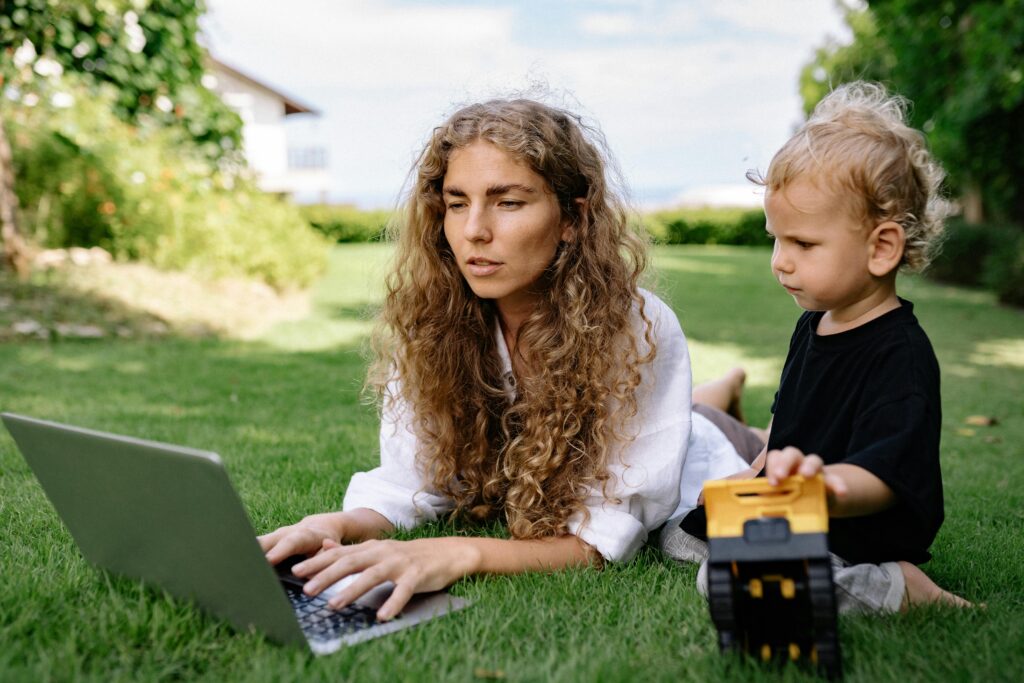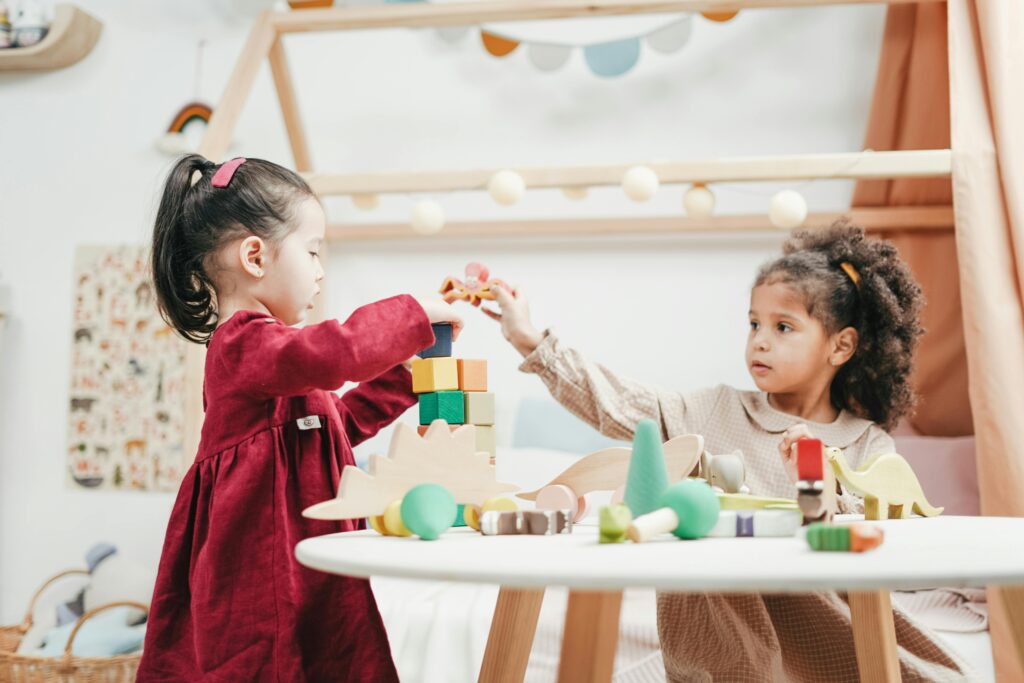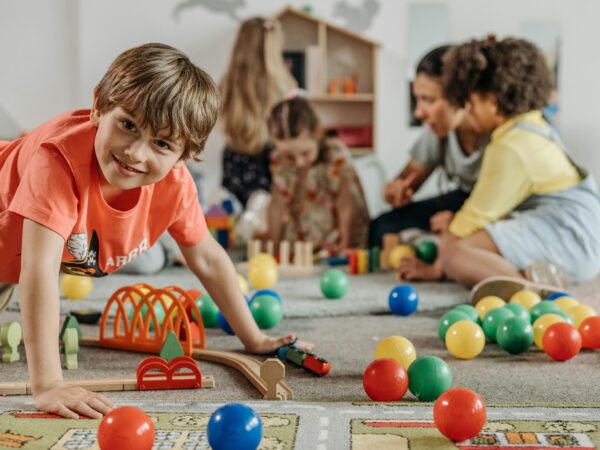
Understanding Toddler Language Development
Understanding toddler language development is akin to unraveling a captivating linguistic journey filled with significant milestones. It begins with the fascinating symphony of early vocalizations, as toddlers babble and coo, laying the foundation for communication.
With each passing month, their vocabulary blossoms, adorned with the adornment of first words, like precious gems carefully gathered in a treasure trove.
The transition to the two-word stage marks a pivotal moment, as toddlers begin to weave rudimentary sentence structures, akin to fledgling artists painting their first strokes on a canvas. Then comes the language explosion, a whirlwind of rapid growth where toddlers eagerly absorb the world around them, their vocabulary sprouting like wildflowers in a spring meadow. Understanding these stages illuminates the complex fabric of toddler language development, a wondrous journey of discovery and expression.
Factors Affecting Toddler Language Development
When considering your toddler’s language development, several factors play significant roles. Firstly, the environment in which they grow up greatly influences their linguistic skills. A rich home environment filled with language stimuli, such as books, conversations, and educational toys, can foster rapid language acquisition.
Additionally, exposure to diverse languages, whether through family members or media, expands their linguistic repertoire. Secondly, social interaction plays a pivotal role, particularly in communication with caregivers and peers.
Engaging in conversations, storytelling, and interactive play enhances their language comprehension and expression. Furthermore, biological factors such as genetics and brain development shape their language abilities. Genetic predispositions may affect language learning capabilities, while brain maturation lays the foundation for processing and producing speech.
By acknowledging and nurturing these factors, you can actively support your toddler’s language development journey, ensuring they reach their full linguistic potential.
Creating a Language-Rich Environment
Creating a language-rich environment for your toddler is not only beneficial for their cognitive development but also fosters strong communication skills from an early age. Engage in constant dialogue with your little one, narrating daily activities using simple and clear language. Encourage their curiosity by asking open-ended questions that prompt them to express their thoughts and feelings.
Reading together is a wonderful way to expand vocabulary and imagination; choose age-appropriate books and make it interactive by pointing, naming, and predicting what comes next.

Establish a reading routine to make it a cherished ritual. Integrate music into your daily routines, incorporating songs that teach concepts or simply bring joy.
Explore various musical styles and instruments through playful activities like clapping, dancing, and movement, which not only enhance language skills but also encourage creativity and expression.
By immersing your child in a world rich with language and music, you’re laying a strong foundation for their lifelong learning and communication abilities.
Encouraging Communication Skills
Introducing New Words in Toddler Language Development
As you embark on nurturing your toddler’s language development, consider the power of introducing new words. Begin by naming objects and actions in their environment, turning everyday activities into opportunities for learning. Whether it’s pointing out a colorful butterfly flitting by or describing the act of pouring water into a cup, each interaction lays the groundwork for language comprehension.
Encourage exploration of descriptive words, fostering a rich vocabulary palette that enables them to articulate their thoughts and feelings. As you discuss concepts and relationships, delve into the intricacies of the world around them, from the concept of time to the relationships between family members. Through these interactions, you’re not just teaching words—you’re shaping a lifelong love for language and communication.
Introducing New Words in Toddler Language Development
As you embark on nurturing your toddler’s language development, consider the power of introducing new words. Begin by naming objects and actions in their environment, turning everyday activities into opportunities for learning. Whether it’s pointing out a colorful butterfly flitting by or describing the act of pouring water into a cup, each interaction lays the groundwork for language comprehension.
Encourage exploration of descriptive words, fostering a rich vocabulary palette that enables them to articulate their thoughts and feelings. As you discuss concepts and relationships, delve into the intricacies of the world around them, from the concept of time to the relationships between family members. Through these interactions, you’re not just teaching words—you’re shaping a lifelong love for language and communication.
Fostering Language Development through Play

Imagine yourself immersed in a world where every action figure, every doll, becomes a gateway to linguistic mastery. Through imaginative play, you’re not just pretending – you’re sculpting narratives, weaving tales that stretch the boundaries of language. As you engage in role-playing, you’re not merely assuming a character; you’re honing your storytelling prowess, building intricate scenarios where words flow effortlessly.
With each block and puzzle piece you fit together, you’re not just solving problems; you’re unraveling the mysteries of spatial concepts, grasping shapes, colors, and sizes with ease. Step outside into the vast playground of nature, and suddenly, language development takes on a whole new dimension.
Amidst the rustle of leaves and the chirping of birds, you’re naming plants, animals, and natural wonders, forging connections between words and the world around you. With every outdoor game, every nature walk, you’re not just exploring; you’re delving into a treasure trove of linguistic opportunities, fostering critical thinking and problem-solving skills that will serve you well in the endless adventure of language acquisition.
Monitoring Progress and Seeking Support in Toddler Language Development
As you navigate through the intricate journey of your toddler’s language development, it’s crucial to establish a routine of regular check-ins to monitor progress and seek support when necessary. Observe your little one’s language development milestones keenly, documenting their progress along the way.
Remember, effective communication with your pediatrician or early childhood specialist can offer invaluable insights and guidance. Should you notice any signs of language delay, don’t hesitate to seek early intervention; timely support can make a significant difference. Accessing resources and support services tailored to your child’s needs is essential, and collaborating with speech-language pathologists and educators can provide tailored strategies for your child’s growth. Stay proactive, stay informed, and remember, you’re not alone on this journey.
By staying proactive and collaborating with professionals, such as speech-language pathologists and educators, you can access a wealth of expertise and tailored support for your child’s linguistic development. Recognizing the signs of language delay early on allows for swift intervention, ensuring your toddler receives the assistance they require to thrive.
Through open communication with your pediatrician or early childhood specialist, you can address any concerns and navigate the best course of action together. Remember, each step you take towards monitoring progress and seeking support is a testament to your dedication as a caregiver, fostering an environment where your toddler can flourish and reach their full potential.
Conclusion
In conclusion, the journey of language development in toddlers is a remarkable one, marked by countless milestones to celebrate. Each step, whether it’s a first word, a complex sentence, or a new language skill, deserves recognition and encouragement. Embracing the whirlwind of toddlerhood, with its ups and downs, is crucial as they navigate the intricate world of language.
It’s a journey filled with wonder and discovery, where every babble and gesture hold the promise of communication. As caregivers, providing love, patience, and unwavering support is paramount in nurturing their linguistic growth. Through gentle guidance and encouragement, we pave the way for their blossoming linguistic abilities, fostering confidence and a deepening connection with the world around them.
